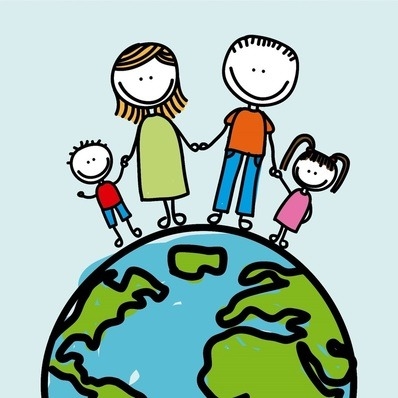
5 Tips to teach your child about being Environmentally Friendly!
3 Jun 2016 | 4 min Read
Nandini Aravind
Author | 50 Articles
There are very few places in the world where I can get my rambunctious 4-year-old to stay put and one of those is when she is on the potty. So taking advantage of the situation and the fact we are in the bathroom, I felt it was an excellent time for me to talk to her about natural resources and ‘The Earth’ and of course ‘The Environment’. Well after a few distractions and flying off the topic I was trying to discuss, I finally managed to get some minuscule ‘Environmental Saving’ ideas into her. Here are 5 tips on how to teach your child about being Environmentally Friendly.
1. Turn the taps OFF
Whether we wash our hands, brush our teeth or even while taking bath, I make sure my daughter understands the right way to use it. Turning the tap off in between while you scrub your hands or while you brush your teeth and trying to limit your use to one bucket while taking a shower is always a good idea. There are times when she wants to play with water just before a bath, I requested her to pour the water into another bucket so that we can still use it. This also turns into a fun game.
2. Reuse, Recycle, Renew
We try and encourage our daughter to give her toys and clothes that she has grown out of to charity or to any other family who can’t afford it. We ourselves as parents do it as well. Segregating our garbage is something we follow as a family, my daughter knows where to throw dry and wet respectively. She also happens to be our in-house rubbish collector and loves the job.
This one may seem a bit odd to you! We use our bed time clothes consecutively for two nights. This helps in saving that ‘extra’ water needed to wash clothes unnecessarily (even if they are not dirty enough). Unless, of course, you or your child has food dropped all over it.
3. Lights off, Hello Sunshine
My daughter has been taught to utilise nature to the fullest when it comes to sunlight. We don’t switch on lights at home during the day, unless it’s one of those rainy, gloomy Bangalore weathers. My daughter sometimes can go overboard, switching off the light at times when I actually need it. Well when you tell a 4-year-old something like the “Earth” is sick, that’s bent on happening.
4. Food is Precious
Not to waste Food – is an area we are still working on. Trying to teach my little one to finish every morsel on her plate is tough; I have higher chances convincing my husband to come shopping with us on a Sunday. Children, however, are very intelligent; with a little dedication from our end, they can be made to understand the real reasons behind valuing food.
5. Plants can be your pets too
With the rise of nuclear families and urbanisation of the city, most of us live in apartments where having a garden is extremely unlikely. Recently my daughter received a potted plant as a return gift. The opportunity seeker that I am, I told her that it is her new pet and she has to water it everyday and take care of it because plants give us air that we breathe. After some debating, she finally agreed to it and even gave it a name. Gifting children potted plants to take care of, is a good way to help them understand the importance of plants and trees.
If we, as parents, can plant the idea of conserving natural resources in the little but impressionable minds, they will create a better place to live in for themselves.
Wish you and your children a very Happy Environment Day!!
Have a good one and share your stories too:-)
Explore the entire collection of articles: Toddler learning, Parenting Gyaan
If you are reading this article on our website and have an Android phone, please download our APP here for a more personalised experience based on your lifestage.
A


Suggestions offered by doctors on BabyChakra are of advisory nature i.e., for educational and informational purposes only. Content posted on, created for, or compiled by BabyChakra is not intended or designed to replace your doctor's independent judgment about any symptom, condition, or the appropriateness or risks of a procedure or treatment for a given person.
